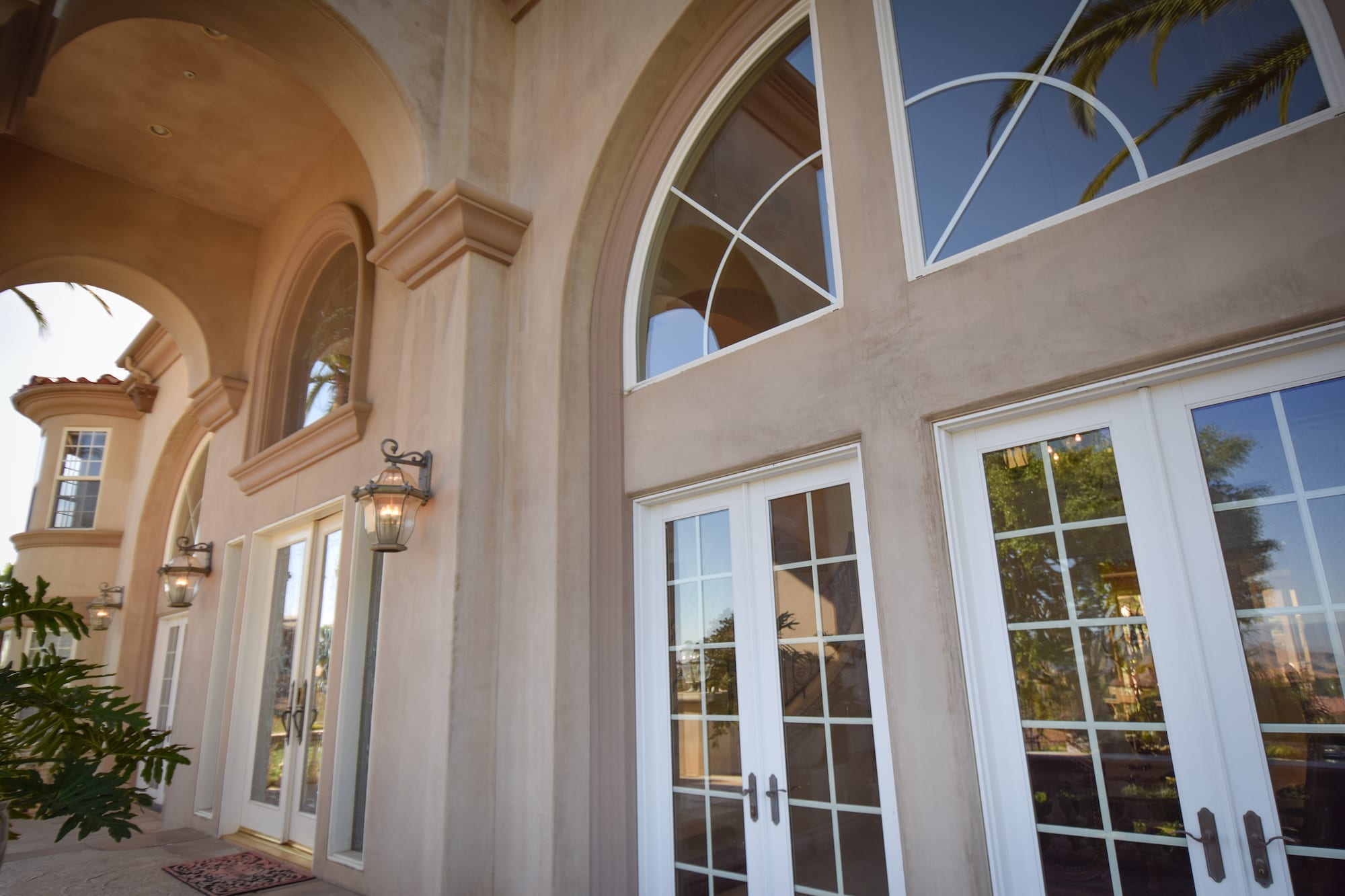Why Residential Window Tint is a Smart Financial Investment for Homeowners
Why Residential Window Tint is a Smart Financial Investment for Homeowners
Blog Article
How Residential Home Window Tinting Enhances Your Home's Power Effectiveness
Residential home window tinting offers a compelling service for homeowners seeking to improve power performance within their living spaces. By applying specialized films to windows, it properly reduces heat transfer, therefore supporting indoor temperature levels and minimizing the need for extreme heating or cooling.
Comprehending Window Tinting
Comprehending home window tinting is vital for homeowners seeking to enhance both comfort and energy efficiency in their space. Residential Window Tint. Window tinting involves the application of a thin movie to the inside or outside surface area of glass home windows. This movie can considerably regulate the quantity of sunshine and heat that enters a home, hence affecting interior climate conditions
There are different types of home window tinting films available, each with distinct homes. The effectiveness of home window tinting is typically measured by its Visible Light Transmission (VLT) percentage, which shows exactly how much light can pass via the movie.
Benefits of Power Effectiveness
Home window tinting not just enhances visual appeals yet likewise plays a significant duty in improving power efficiency within household areas. By lowering warm transfer through home windows, tinted movies produce an extra stable interior climate, which can bring about considerable decreases in energy usage for heating & cooling. This power effectiveness converts into lower utility costs, providing home owners with substantial lasting savings.

Additionally, home window tinting improves the comfort of living spaces. By decreasing glow and blocking hazardous UV rays, tinted windows develop a more pleasant setting, which can lead to enhanced well-being for owners. The security against UV rays additionally assists protect furnishings and floor covering from fading, contributing to the long life of family items.
How Tinting Functions
Tinting films run through a mix of sophisticated materials and modern technologies developed to regulate the amount of solar power entering a home. Primarily made up of polyester, these films commonly incorporate metal or ceramic bits that take in and mirror warmth. This twin capacity enables them to considerably lower the penetration of ultraviolet (UV) rays and infrared radiation while allowing visible light to go through.
The efficiency of home window tinting is measured by its solar warm gain coefficient (SHGC), which indicates exactly how much solar power is sent through the home window. Reduced SHGC values are more effective as they denote better heat being rejected. In addition, home window tints can feature a selection of tones, allowing house owners to tailor their aesthetic preferences while boosting energy efficiency.
Moreover, these movies act as an obstacle, avoiding warm loss throughout cooler months by reflecting interior warmth back right into the living room. This thermal insulation result complements the cooling benefits gotten throughout warmer months, adding to a well balanced indoor climate year-round. By managing solar power properly, residential window tinting not just enhances convenience however also plays a vital role in decreasing energy consumption and decreasing energy expenses.
Selecting the Right Tint

There are various types of home window visit their website movies offered, including dyed, metalized, and ceramic. Ceramic movies offer outstanding warmth control without compromising visibility and are extremely long lasting, making them a preferred choice.
Noticeable light transmission (VLT) is an additional crucial element, as it suggests the quantity of all-natural light that can travel through the tinted glass. Property owners ought to pick a tint with a VLT that enhances their illumination preferences while still giving appropriate glow reduction.
In addition, analyzing the solar heat gain coefficient (SHGC) can help identify how well a tint can block warm from sunlight. A lower SHGC indicates better heat control, ultimately boosting energy efficiency.
Installation and Upkeep Tips
Appropriate installation and maintenance are crucial parts in optimizing the advantages of household window tinting. To accomplish ideal results, it is advisable to work with a qualified specialist see this website for setup. This guarantees that the color is used correctly, staying clear of air bubbles, wrinkles, or misalignment that can compromise performance. Professionals additionally use specialized techniques and devices, which can enhance the toughness and performance of the tint.
Complying with installment, upkeep is important to extend the life of the home window film. It is suggested to wait Discover More at the very least 30 days prior to cleansing the tinted windows to permit the adhesive to cure fully.
Addressing these problems quickly can protect against additional damage and maintain power effectiveness. By adhering to these installation and maintenance ideas, property owners can ensure their window tinting proceeds to supply considerable energy cost savings and comfort for years to come.
Verdict
Finally, household home window tinting serves as an efficient option for improving energy performance within homes. By minimizing heat transfer and obstructing harmful UV rays, home window films contribute to decrease energy intake and enhanced indoor comfort. The option of suitable tinting products, together with proper setup and maintenance, better maximizes these advantages. Ultimately, home window tinting represents a lasting financial investment that not only reduces utility expenses but likewise promotes a comfy living environment throughout the year.
Window tinting includes the application of a thin movie to the inside or outside surface of glass home windows. By reducing heat transfer with home windows, tinted movies create a more stable interior climate, which can lead to considerable reductions in power intake for heating and cooling.The efficiency of home window tinting is measured by its solar warm gain coefficient (SHGC), which suggests just how much solar power is transferred via the window. By managing solar energy successfully, residential window tinting not only boosts convenience yet also plays an important function in minimizing power consumption and lowering utility bills.
By decreasing warm transfer and blocking damaging UV rays, home window movies add to decrease power usage and boosted indoor comfort.
Report this page